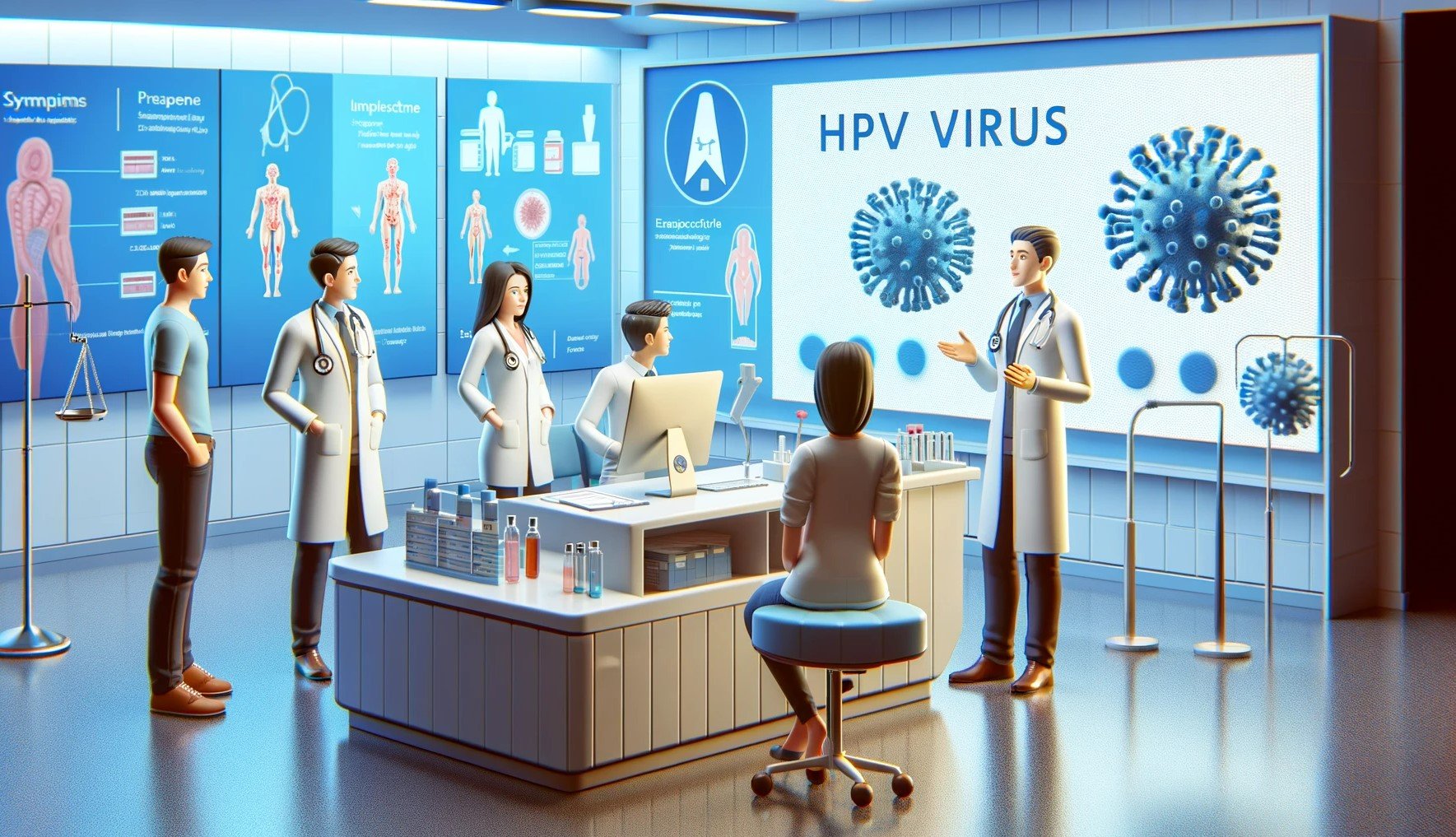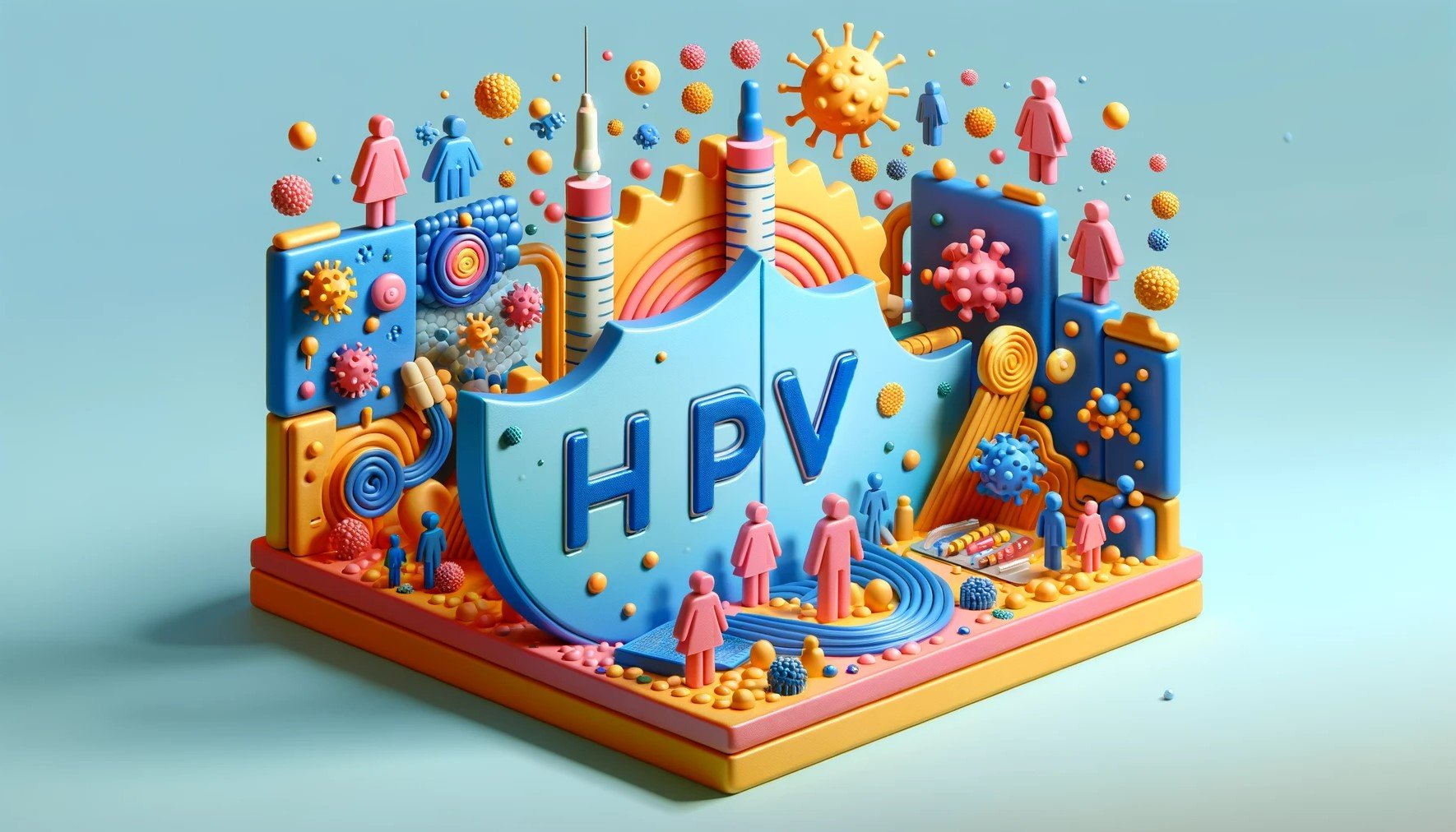A common question that arises among women who have undergone a hysterectomy is whether they can still be tested for HPV. Understanding the implications of a hysterectomy on HPV detection is crucial, as HPV is known to be a leading cause of cervical cancer. Its detection plays a significant role in preventive healthcare.
But first, it's important to clarify what a hysterectomy & HPV entails.
HPV stands for Human Papilloma Virus. It is a group of viruses that infect the genital areas. It can also infect the mouth and throat.
HPV is a very common sexually transmitted disease. HPV can lead to genital warts or cervical cancer. Vaccines are available to protect people from HPV.
Hysterectomy refers to the surgical removal of the uterus.
HPV after a hysterectomy chances are if the hysterectomy was done to treat CIN.
But what about life after a hysterectomy? Does it truly eliminate HPV risks? Join us as we explore the chances of HPV after a hysterectomy!
Can HPV still be present after a hysterectomy?
When you have a hysterectomy the doctors remove the uterus and the cervix as well. This reduces the risk of HPV after a hysterectomy. But HPV might still be present in vaginal cells. So, even with a hysterectomy, you may not be completely free of HPV. And hence, even after a hysterectomy, you can have HPV which can lead to vaginal cancer. Hysterectomy is a common treatment for cervical cancer or other uterus issues. 18.8% of patients develop CIN (cervical intraepithelial lesions). Such patients are at a high risk of developing HPV. 5.4% of the patients without CIN history can also develop HPV after a hysterectomy. There is a 9% chance of HPV after a hysterectomy if it is done to treat CIN.
Curious about the invisible aftermath of a hysterectomy? As it can still linger, learn what helps to detect it early!
Can HPV infections be detected after a hysterectomy?
Yes, HPV infection can still be detected after hysterectomy. The surgery may remove the uterus and cervix. But, this does not necessarily remove all the other cells where HPV persists. Regular screening of HPV after a hysterectomy is recommended.
The ability to detect HPV infections after a hysterectomy largely depends on the type of hysterectomy performed and the reason for the surgery.
Total Hysterectomy for Non-Cancerous Reasons:
- Description: This surgery involves the complete removal of the uterus and cervix. It's usually done for non-cancerous reasons, like fibroids or heavy uterine bleeding.
- Impact on HPV Testing: Since the cervix is completely removed, the risk of developing cervical cancer is significantly reduced. Therefore, routine cervical screenings (Pap tests and HPV tests) are generally not needed after this type of hysterectomy.
2. Partial Hysterectomy or High-Risk Factors:
- Description: In a partial hysterectomy, only the uterus is removed, leaving the cervix intact. This type might also be performed due to cancerous or precancerous conditions.
- Impact on HPV Testing: Regular screening for HPV is important in these cases. If the cervix is present, it can be affected by HPV. It may lead to cervical dysplasia or cancer. HPV can impact other areas like the vulva, vagina, and anus, so continued vigilance with screenings is crucial.
3. Visual Inspection with Acetic Acid (VIA): This is a simple test where a vinegar-like solution is applied to the cervix or vagina. If there are any unusual cells, they change colour. A doctor can see these changes.
4. Colposcopy: If your HPV or Pap test shows something unusual, you might have a colposcopy. This is when a doctor uses a special tool to get a closer look at your cervix, vagina, and vulva.
5. Biopsy: If they find something suspicious during the colposcopy, they might take a small sample of tissue to examine more closely.
6. Regular Physical Exams: It’s important to have regular check-ups of your pelvic area. This helps your doctor check the health of your vagina, vulva, and other organs.
The risk of HPV after a hysterectomy is reduced. Still, it is important to take precautions and monitor it regularly.
Regular follow-ups and early detection are key to managing the potential risks
The signs may not always be apparent, but understanding them is the key to proactive health management!

Are there specific symptoms of HPV to watch for after a hysterectomy?
Yes, even if you've had a hysterectomy, HPV can affect other parts of your genital area. So, it's essential to remain vigilant about any changes or symptoms.
- Genital Warts: These are small bumps that can appear on the genital area.
- Cell Changes in Cervix or Anus: HPV can lead to unusual changes in the cells of the cervix (if it's still present) or the anus.
- Discomfort During Sex: Experiencing pain or discomfort during sexual intercourse can be a sign.
- Unusual Vaginal Bleeding or Discharge: Any strange bleeding or discharge from the vagina should be noted.
- Pelvic Pain: Persistent pain in the pelvic area is also a symptom to be aware of.
Precautions and monitoring become your allies post-hysterectomy. Discover the essential steps to stay vigilant and proactive in safeguarding against lingering HPV risks.
Are HPV vaccines recommended for those who have had a hysterectomy?
Yes, HPV vaccines can still be recommended for individuals who have had a hysterectomy, depending on their age and specific circumstances. A study found that a vaccine for HPV after a hysterectomy can provide a protective effect of 67%. The key considerations include:
- Age Matters: The HPV vaccine is usually given to younger people. But adults up to age 26 are also commonly advised to get it. If you're between 27 and 45, you might still get the vaccine after talking to your doctor about it.
- HPV Can Affect More Than the Cervix: HPV isn't just about the cervix, which is often removed during a hysterectomy. It can also cause other types of cancer (like vaginal, vulvar, anal, and throat cancers). So, the vaccine might help protect against these.

- Medical History: If your uterus was removed because of HPV-related health issues, your doctor might suggest the vaccine to protect against other types of HPV.
- Stopping the Spread: The vaccine can help prevent you from passing HPV to others, which is important if you're sexually active.
Even if the vaccine does not cover all previously encountered HPV types, it can still be beneficial for preventing new infections and protecting against other cancer-causing HPV strains.
References:
https://www.ncbi.nlm.nih.gov/pmc/articles/PMC6974869/
https://www.ncbi.nlm.nih.gov/pmc/articles/PMC3817789/
https://www.allohealth.care/healthfeed






